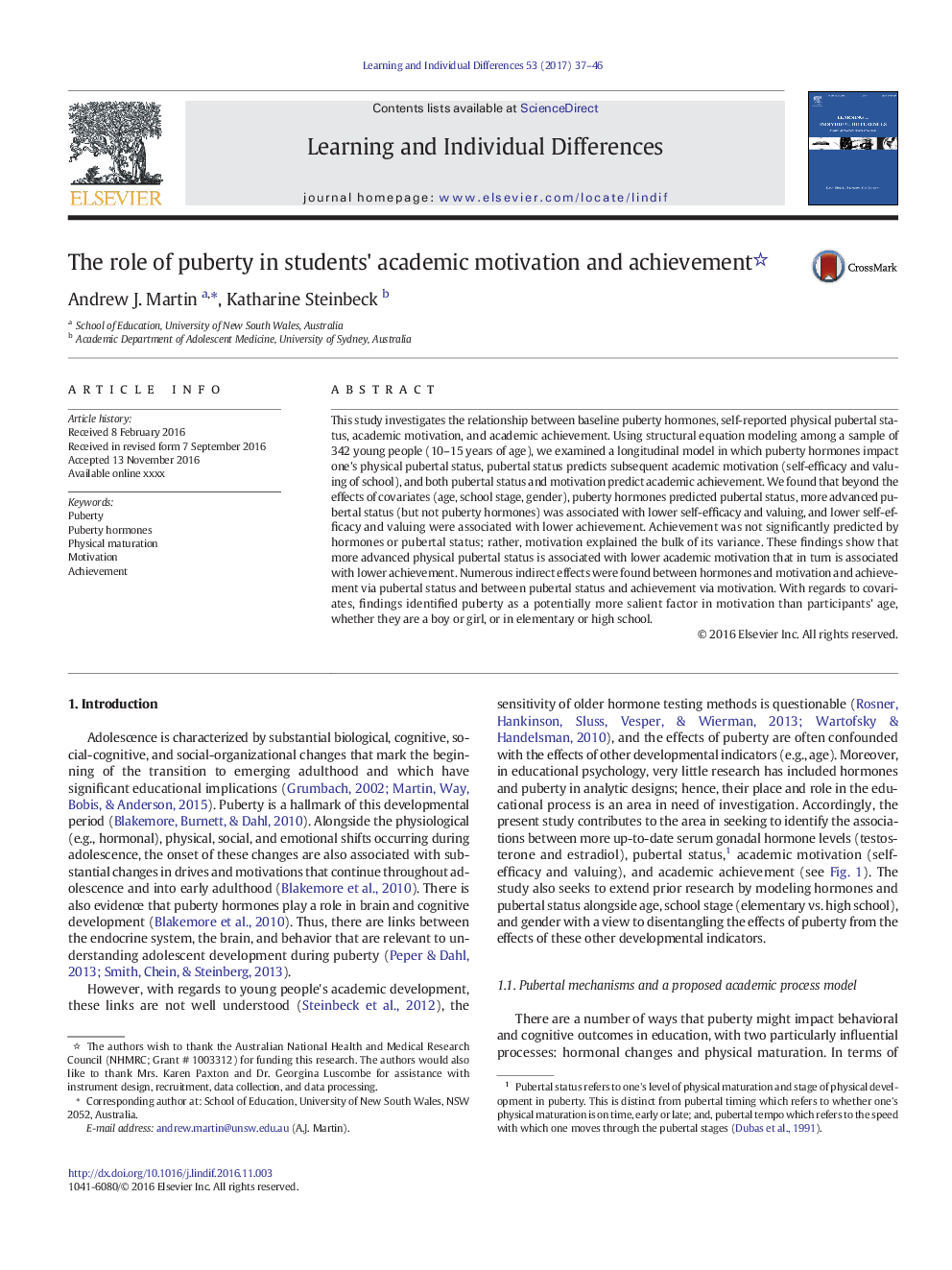ترجمه فارسی عنوان مقاله
نقش بلوغ در انگیزه و موفقیت تحصیلی دانش آموزان
عنوان انگلیسی
The role of puberty in students' academic motivation and achievement
| کد مقاله | سال انتشار | تعداد صفحات مقاله انگلیسی |
|---|---|---|
| 155562 | 2017 | 10 صفحه PDF |
منبع

Publisher : Elsevier - Science Direct (الزویر - ساینس دایرکت)
Journal : Learning and Individual Differences, Volume 53, January 2017, Pages 37-46
ترجمه کلمات کلیدی
بلوغ، هورمونهای بلوغ، بلوغ فیزیکی، انگیزه، دستاورد
کلمات کلیدی انگلیسی
Puberty; Puberty hormones; Physical maturation; Motivation; Achievement;

